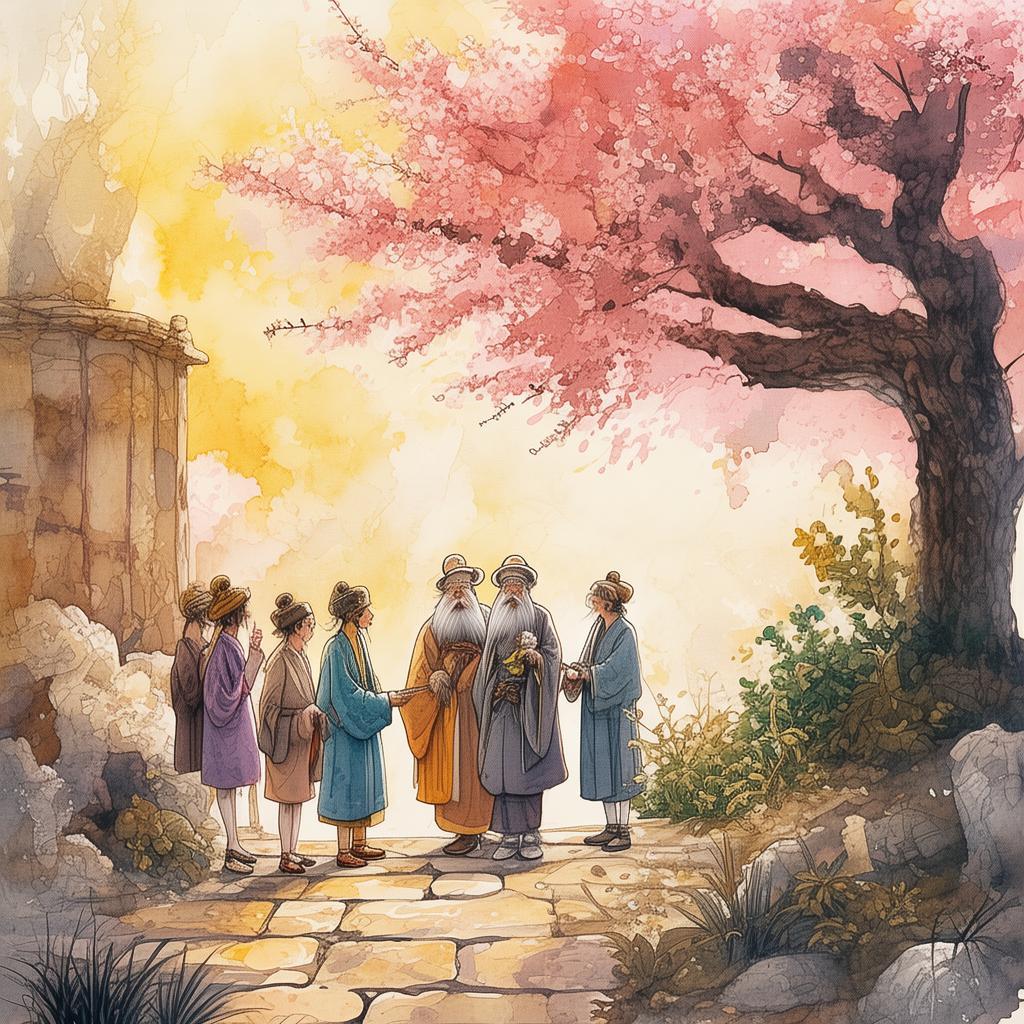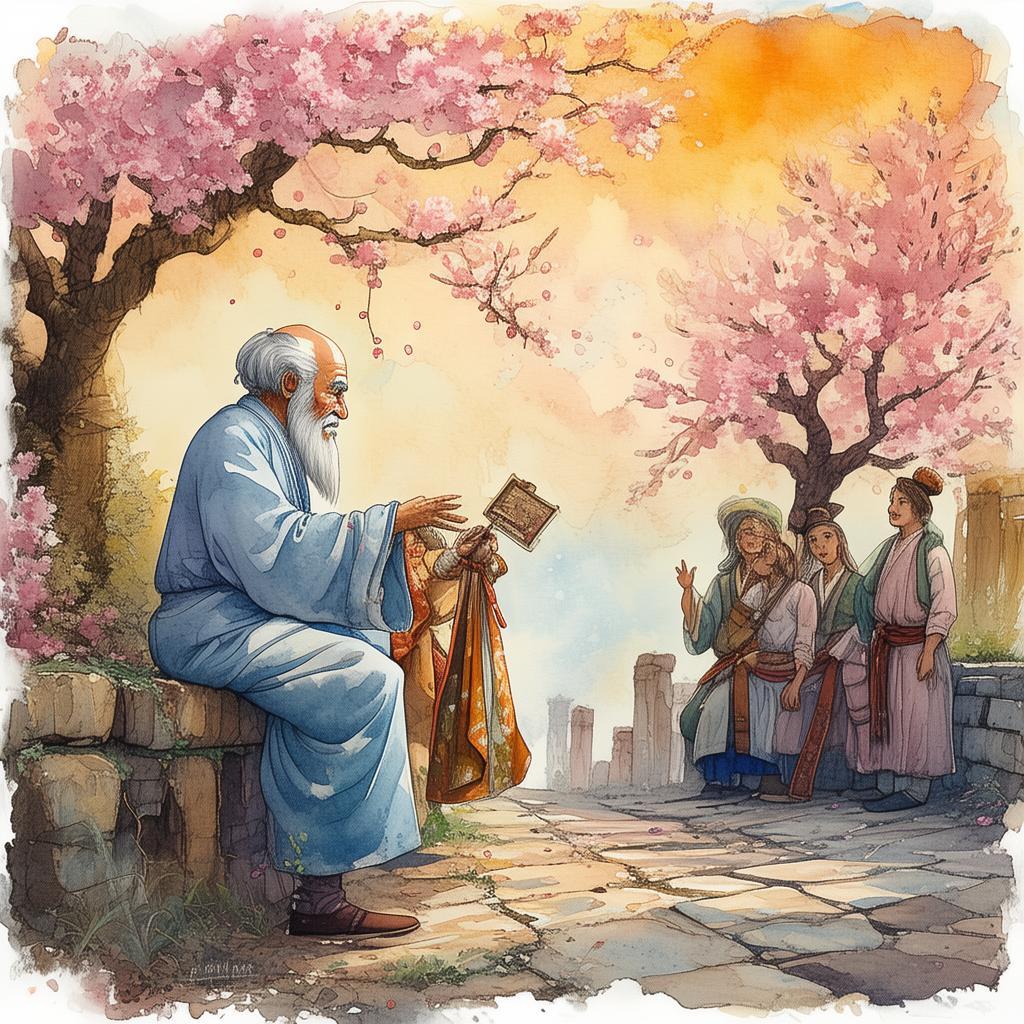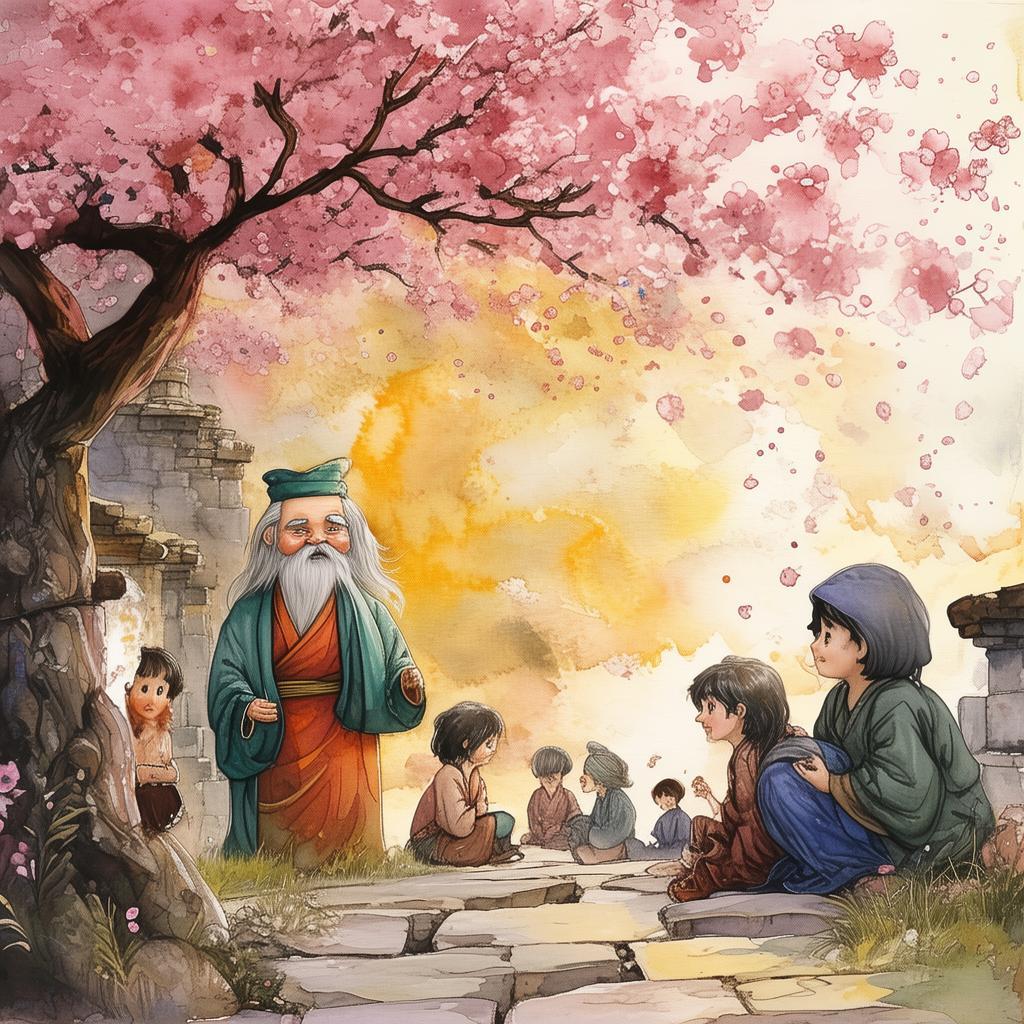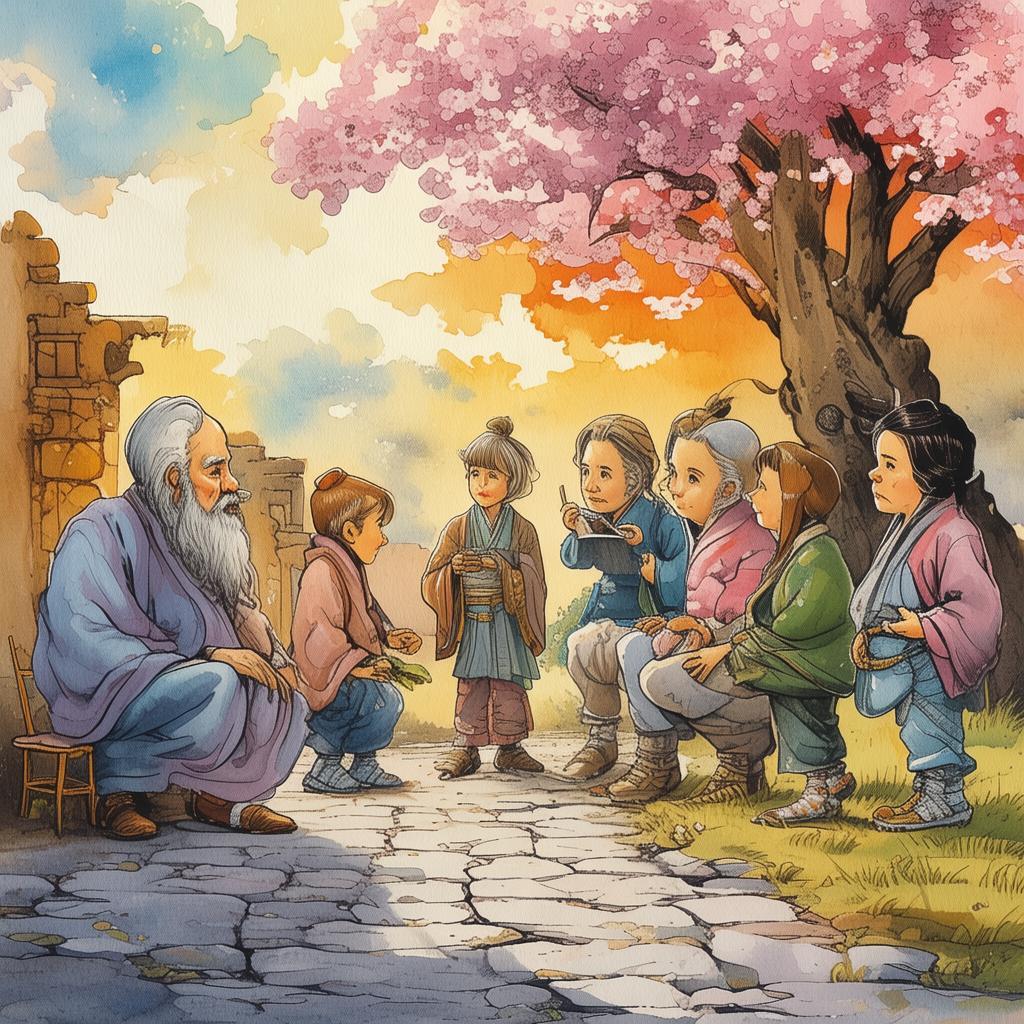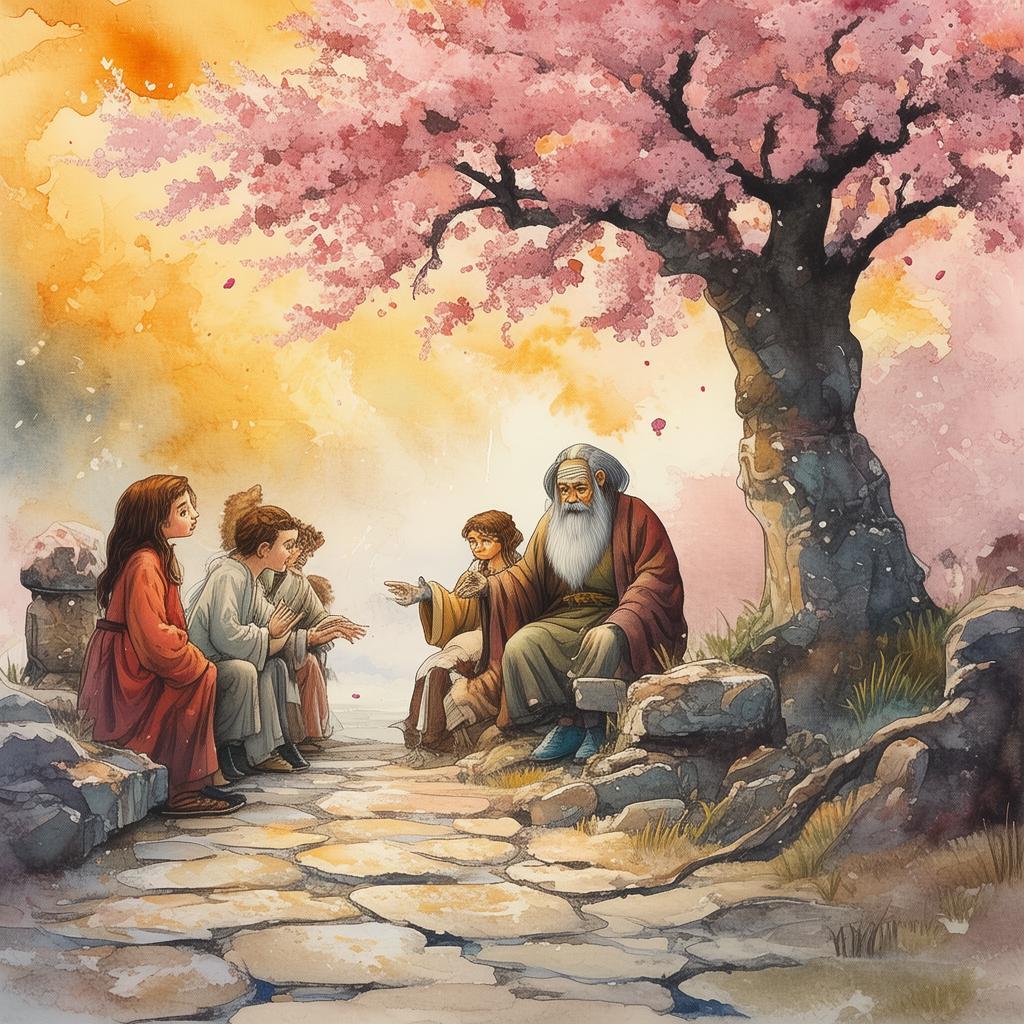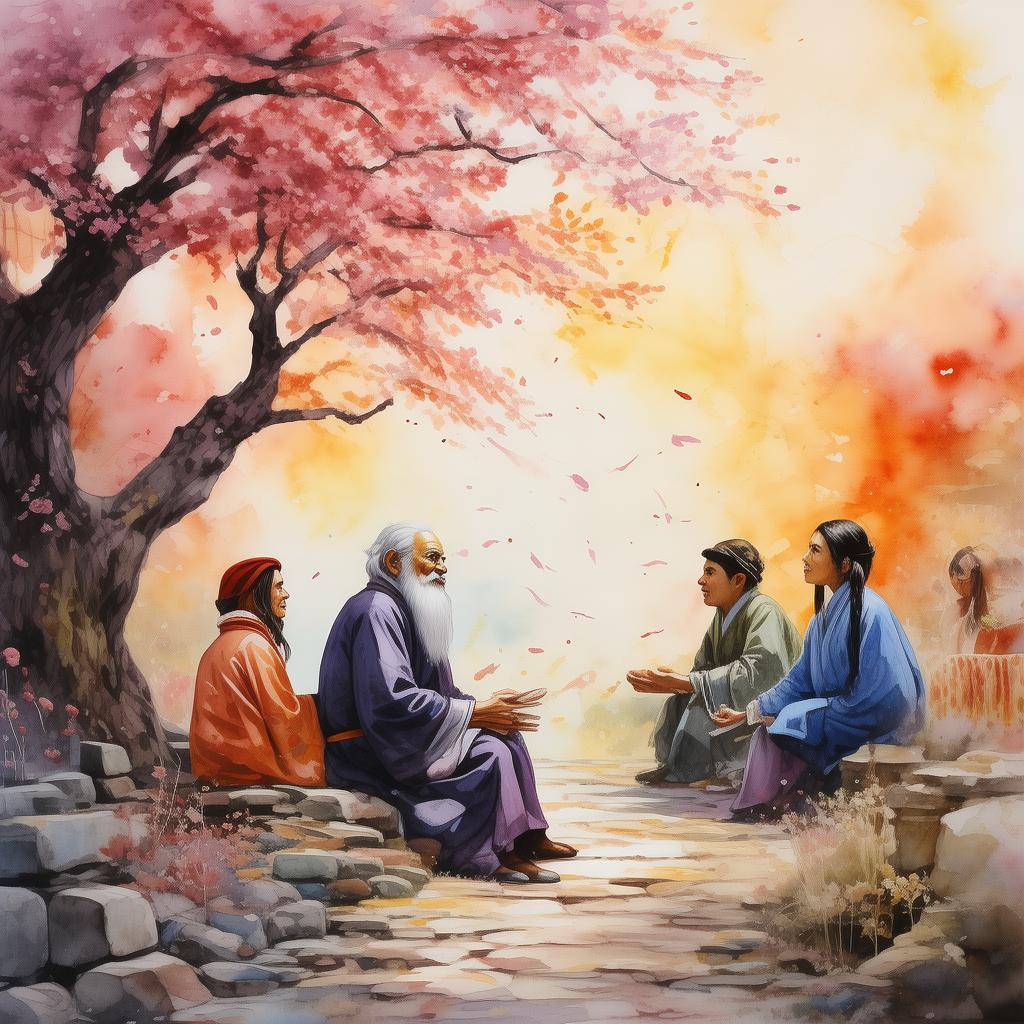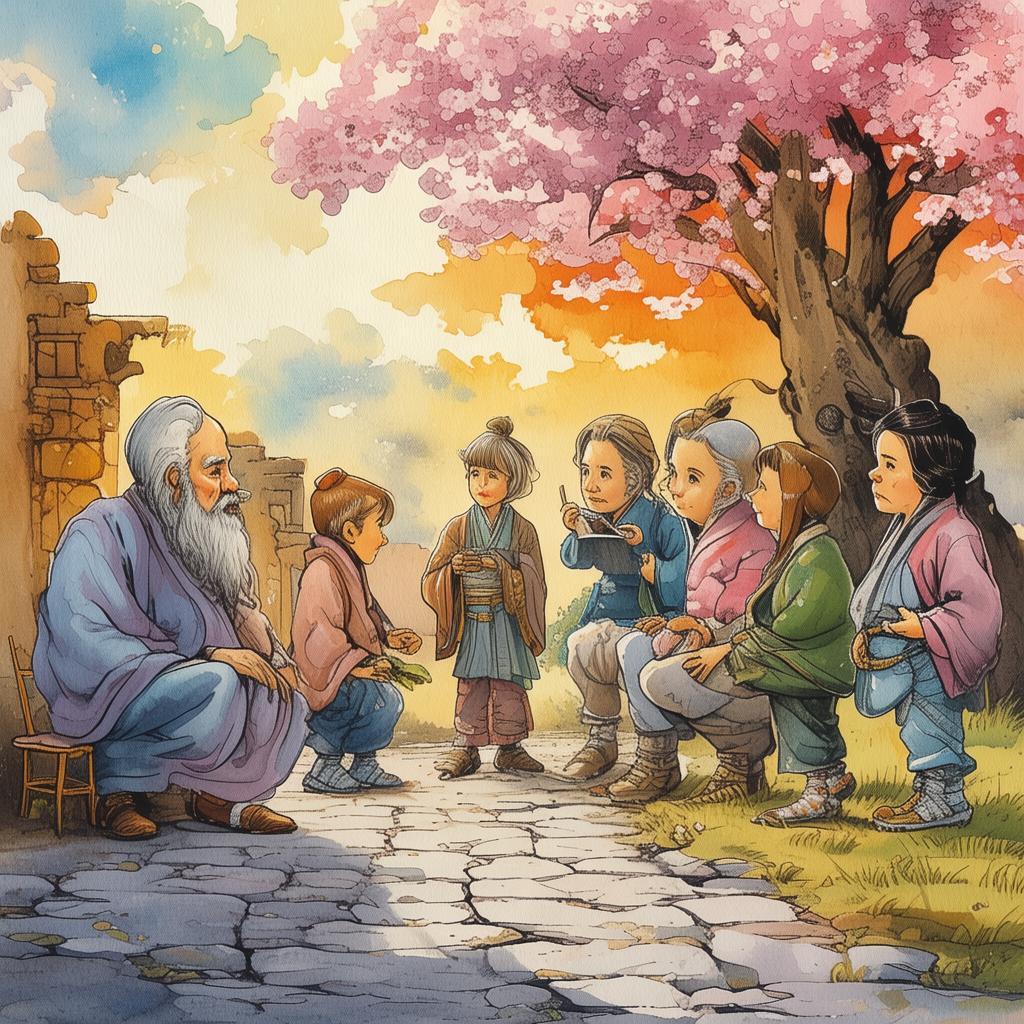The Paradox of the Vanishing Poet
In the ancient city of Luminara, where the echoes of wisdom echoed through every cobblestone alley, there lived a poet whose verses could move mountains. His name was Zephyros, and his words were the breath of the gods, weaving the essence of existence into every line. People spoke of him with reverence, as if he were a bridge between the world of men and the realm of the divine.
One morning, as the sun cast its golden glow over the city, a chilling news spread like wildfire. Zephyros had vanished. He had been sighted at the edge of the city, whispering cryptic verses into the wind, and then he simply disappeared. No trace of him remained, not even a footprint on the ground.
The young scholar, Eudaimon, was captivated by the mystery. His heart yearned to uncover the truth, to understand why a man so beloved by so many would suddenly disappear into the ether. He knew he had to act, for if Zephyros had indeed vanished, his absence would leave a void in the heart of Luminara that no one could fill.
Eudaimon approached the philosopher, Socrates, seeking guidance. "Master Socrates," he said, "the poet Zephyros has vanished, and I must find him. Can you help me?"
Socrates pondered for a moment, then replied, "Eudaimon, the quest you seek is not merely a search for a missing man, but a journey into the heart of existence itself. The paradox of Zephyros' vanishing is a puzzle that lies at the very core of reality."
Eudaimon's eyes widened with curiosity. "What do you mean, Master?"
Socrates stood and walked to the edge of his garden, where the world seemed to blur into a dream. "Consider this," he began, "if Zephyros is a poet, and poetry is the essence of reality, then what happens when a poet ceases to write? Does reality cease to exist?"
The young scholar's mind raced. "Could it be that Zephyros' vanishing is a metaphor for the nature of existence itself? What if he has transcended reality, becoming the embodiment of his own poetry?"
Socrates nodded, "That is one possibility. But another is that his vanishing is a paradox, a challenge to our understanding of reality. The more we seek the truth, the more elusive it becomes."
Determined, Eudaimon set out on his journey. He traveled through the winding streets of Luminara, speaking with the city's inhabitants, seeking any clue that might lead him to Zephyros. He visited the temples, the markets, the libraries, and even the edges of the city where Zephyros had last been seen.
One night, as he sat by the river, pondering the riddles of existence, he heard a soft whisper. "You seek the poet, but do you truly understand the nature of poetry?"
Eudaimon turned to see an old woman, her eyes twinkling with the wisdom of ages. "Who are you?" he asked.
"I am the Muse of Memory," she replied. "I have watched over Luminara for centuries, and I know the secrets of the heart."
Eudaimon felt a surge of hope. "Tell me, Muse, what do I seek?"
The old woman's voice was like the rustle of leaves in the wind. "You seek the truth, but the truth is not what you think. Zephyros has not vanished. He has become the poetry of the world. His words are everywhere, in the songs of the birds, the laughter of children, the whispers of the wind."
Eudaimon's mind was a whirlwind of questions. "But how can this be? If Zephyros is everywhere, how can we ever find him?"
The Muse's eyes glowed with an ancient light. "To find Zephyros, you must become the poet. You must create your own reality, write your own story. Only then will you understand the true nature of existence."

Eudaimon took a deep breath, feeling the weight of the Muse's words settle in his heart. He returned to the city, not as a seeker of a missing man, but as a creator of his own destiny.
In the days that followed, Eudaimon wrote poetry, painting the world with words, crafting tales that would echo through the ages. And as he did, he realized that Zephyros was not lost, but had become the very essence of Luminara, the spirit that breathed life into the city.
The city itself seemed to respond to Eudaimon's creation, its streets humming with the rhythm of his verses. People began to speak of him, not as a young scholar, but as the new Zephyros, the poet of the age.
Eudaimon stood atop the city's highest tower, looking out over the sprawling metropolis. He knew that he had found Zephyros, not in the flesh, but in the essence of his creation, in the reality that he had woven with his words.
And as the sun set over Luminara, casting a golden glow over the city, Eudaimon whispered to the wind, "Master Socrates, you were right. The paradox of the vanishing poet is not a mystery to be solved, but a truth to be lived."
In that moment, the city of Luminara was no longer just a place, but a story, a reality created by the hand of a poet, and in that story, Zephyros lived on forever.
✨ Original Statement ✨
All articles published on this website (including but not limited to text, images, videos, and other content) are original or authorized for reposting and are protected by relevant laws. Without the explicit written permission of this website, no individual or organization may copy, modify, repost, or use the content for commercial purposes.
If you need to quote or cooperate, please contact this site for authorization. We reserve the right to pursue legal responsibility for any unauthorized use.
Hereby declared.
